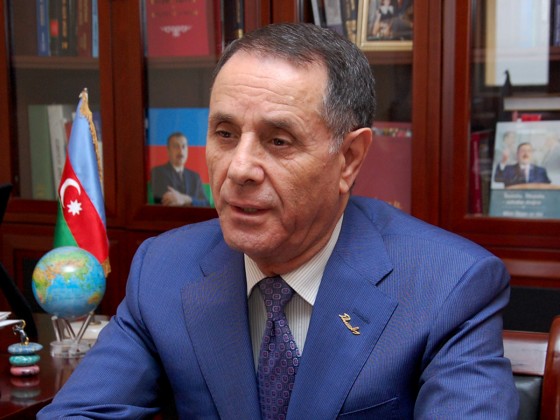
OSCE’s Minsk Group doesn’t approach the Nagorno-Karabakh conflict’s settlement in all seriousness and doesn’t apply the international law, said Novruz Mammadov, deputy head of Azerbaijani presidential administration, chief of the administration’s foreign relations department.
He made the remarks Dec. 12 speaking to reporters at a press conference in Baku.
“The co-chairs don’t use the possibilities of international law to resolve the conflict. This proves that the approach of those countries [the MG co-chairs] to this conflict isn’t fully fair. Seven districts around Nagorno-Karabakh are under occupation, the rights of over 850,000 refugees have been violated,” he said.
“The leadership of Azerbaijan – national leader Heydar Aliyev and President Ilham Aliyev have done and are doing everything possible to facilitate the life of refugees and internally displaced persons,” said Mammadov.
He added that, however, the western countries, like other states, have never said anything on the issue.
“No one has ever thought how Azerbaijan managed to place one million refugees, and now in Europe there are 600,000-700,000 refugees, and they don’t know what to do with them,” said Mammadov, adding that no one says anything about the violation of fundamental rights of Azerbaijani refugees.
He said this is a complete injustice and a striking example of double standards and approaches to the situation.
The top official also said it is not right that the separatist authorities of the so-called Nagorno-Karabakh Republic are granted permissions and visas for them to enter the US, and to hold events there.
Mammadov added that Azerbaijan well understands the essence of international processes, and from this point of view, the path that the country has gone is very successful.
The point here, as he said, isn’t limited to ensuring stability, security and development. Aside from all of that, according to Mammadov, Azerbaijan possesses a great potential in terms of settlement of the Nagorno-Karabakh conflict.
“Armenian side is constantly losing, as it continues to occupy Nagorno-Karabakh not with its own forces, and meanwhile the forces it relies on, soon won’t be able to stand and will collapse,” said Mammadov.
“If Armenia was continuing the occupation with its own forces only, all the processes could have been completed in three months and an end would have been put to the issue of the conflict,” he noted.
The conflict between the two South Caucasus countries began in 1988 when Armenia made territorial claims against Azerbaijan. As a result of the ensuing war, in 1992 Armenian armed forces occupied 20 percent of Azerbaijan, including the Nagorno-Karabakh region and seven surrounding districts.
The two countries signed a ceasefire agreement in 1994. The co-chairs of the OSCE Minsk Group, Russia, France and the US are currently holding peace negotiations.
Armenia has not yet implemented the UN Security Council’s four resolutions on the liberation of the Nagorno-Karabakh and the surrounding regions.
Trend
